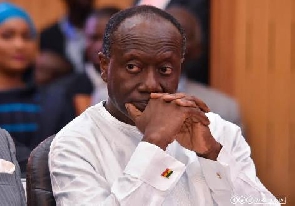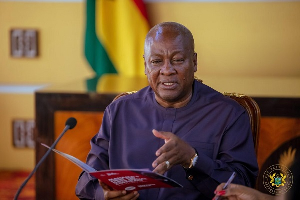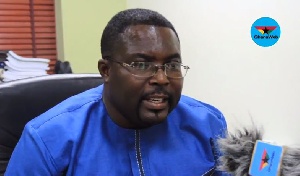I had a great interview at Luv FM on the impressive and hope budget focusing specifically on the agricultural sector. Here are my few insights and perspectives on what could be done on the agric sector in order to deliver the development we seek as a nation:
“Planting for food and jobs campaign to some extent is inadequate without the provision of reliable and profitable market access for smallholders”
Planting for food and jobs is undoubtedly a great campaign. We, as a nation must endeavor to increase our production. However, it is incumbent on us to provide and accelerate reliable and profitable market access for our cherished and hardworking smallholder farmers. Farmers do not just produce for food; they essentially produce to earn income. Normally, what we witness on the field is that, smallholders loss about 1/3 of their production due to the lack of readily available market access and storage facilities. In a typical community like Ejura in the Ashanti region of Ghana, mostly, all the farmers produce crops like cassava, maize and vegetables, then, there is a bumper harvest but nobody to buy. Prices drastically reduce and farmers who even want to wait hoping to get favorable prices loss everything at the end to rotten and wastage.
To improve the lives of our farmers, the government must also speed work on improving profitable market access for our farmers to meet the production. We must avoid the situation where our farmers produce for waste. And I think, the 1 district, 1 factory if done right and on time will help to reduce the effect of this challenge.
“A century ago, mankind found most of the solutions to agriculture; the only challenge now is how to effectively and efficiently distribute these solutions to rural smallholders.”
Widen the net of free fertilizer distribution project to 180,000tons is a giant step. This is expected to boost cocoa production or yield for this year. Ideally, our farmers are expected to harvest 16bags of cocoa per an acre but currently trailing around an average 2- 4 bags per an acre. So, ensuring effective distribution channels for the free fertilizer program will positively impact cocoa production significantly in Ghana. But before we jump into celebration about this, let ask ourselves, how much of the quantities of the free fertilizer written on paper, get into the smallholder farmer in the village and finally go down to the field, the cocoa farm.
The free fertilizer program currently has huge challenges with distribution and smallholder farmers’ access. From my interactions on the field, the following are the issues:
1. Poor timing of distribution, actual and ideal time for fertilizer application starts in May when the rains begin to fall. Unfortunately, most farmers receive their free fertilizers late in August.
2. Inadequate quantities
3. Unmapped farms or non-members of groups are excluded
4. Lack of enough education on fertilizer and spraying chemicals application
5. Government free quality fertilizer are unavailable on the market for sales to farmers who can afford
6. Lack of effective monitoring, verification and evaluation
So the point is, what mechanisms is the government adopting to ensure adequate accessibility of these inputs by the smallholders. We must avoid the situation where the fertilizer ends up in the officer’s store room rather the farmer’s cocoa farm.
To solve these issues, government will need innovative technologies like Farmerline mergdate to facilitate verification by using voice surveying technology. Again, National Identification will also be helpful in this verification process.
Government must be applauded for boosting the funding in Agriculture. Agriculture sector has always been underfunded in this country. Item 785 of the 2017 budget, government revealed that, GHC335.14 million was the planned expenditure for the agric sector in 2016. This was miserably slashed down to 50% amounting (GHC181. 29) million as actual expenditure. About 90% of this actual expenditure was spent on poverty focused expenditures such as the Fertilizer Subsidy programme and the establishment of Agricultural Mechanisation Service Centres, among others to boost agricultural production. For 2017, a total of GH¢450.33 million is estimated for this sector. An amount of GH¢421.52 million of this allocation, representing 93.60 percent, will be spent on the Fertilizer Subsidy programme and the Agricultural Mechanisation service centres, among others.
Now the question is, how much goes into extension service delivery at the district levels and the running of the various MoFA directorates. These offices are mostly under resourced and mostly, most of these extension officers lack funds for fuel and transport to do their works.
One key thing here is, the 93% budget allocation for Fertilizer Subsidy Programme exclusively targets the cocoa sector. So what happens to other commodities like rice, maize, sorghum, cassava and etc. All of them to share the remaining 7%, this is woefully inadequate. Why is cocoa sector given that priority? Cocoa has reliable and profitable market access.
So, I think, government should also give deserving attention to the non-cocoa sectors in the agriculture space.
Lastly, agriculture loan is also a success factor in this sector. It will also be great for government to commitment to advancing rural finance and credit access by smallholder farmers. Tackling these issues will revolutionize agriculture development in Ghana.
Schandorf Adu Bright
As Farmerline’s Director of Farmer Services, Schandorf manages a team of eight and he is responsible for leading training workshops for farmers, conducting user research, collecting data, advocating Farmerline’s initiatives, and monitoring and evaluating their impact. On behalf of Farmerline, Schandorf has trained more than 5,000 small-scale farmers to adopt and benefit from Farmerline’s voice messaging technology. Schandorf has rich experiences in rural financing.(Email: schandorf@farmerline.org)
Opinions of Thursday, 9 March 2017
Columnist: Bright, Schandorf Adu



















